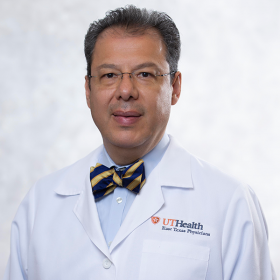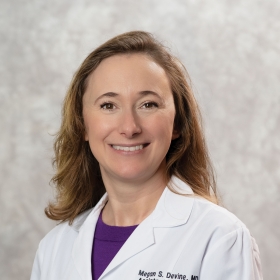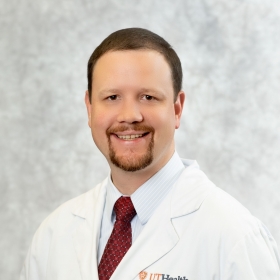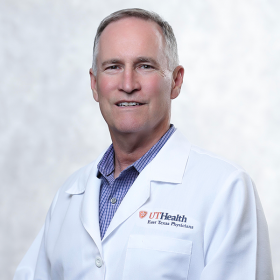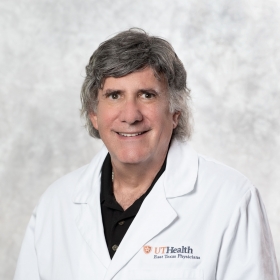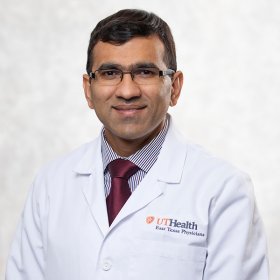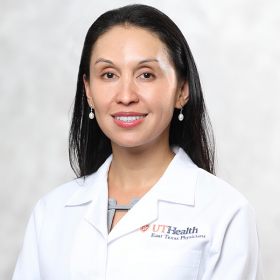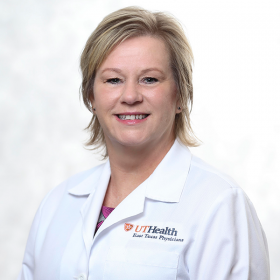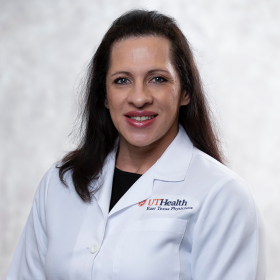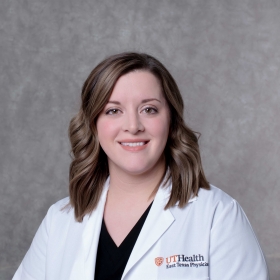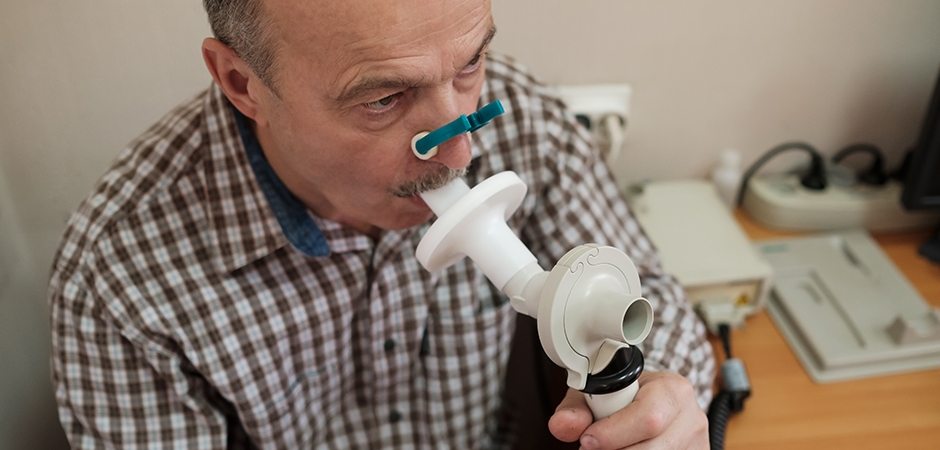
Pulmonary function tests (PFTs) are noninvasive tests that measure how much air your lungs can hold and how well you can let the air out of your lungs. Pulmonary function tests are also called lung function tests.
How much air can your lungs hold? How quickly can you move air in and out? How well can your lungs take in oxygen and remove carbon dioxide from your blood?
Pulmonary function tests provide answers to these questions. They allow physicians to diagnose the existence and severity of lung diseases and also indicate how well lung treatments may be working. Same-day testing is available.
PFTs are among the examinations offered at the Ralph and Mary Prince Pulmonary Center at UT Health North Campus Tyler on an outpatient basis. Pulmonary function tests include:
- Cardiopulmonary exercise test (CPET) – Assesses how well the heart, lungs and muscles are working individually, and how these systems are working in together. A CPET is highly sensitive, non-invasive stress test.
- Compliance test – Diagnose a variety of lung conditions by checking the stiffness or elasticity of the lungs with the aid of a balloon catheter.
- Fractional exhaled nitric oxide (FeNO) – Assists in the diagnosis and management of a variety of lung diseases, especially allergic asthma. Nitric oxide produced in the breathing passages is a marker of allergic inflammation.
- Gas exchange tests (DLCO) – Measure how much oxygen passes from the lungs to the blood, which is important in diagnosing many lung diseases.
- Inspiratory and expiratory muscle pressures (PI and PE max) – Evaluate possible neuromuscular disease by gauging the pressures generated by the respiratory muscles.
- Lung volume measurements – Detect restrictive lung diseases that prohibit complete inhalation of air. Restrictive lung diseases may be caused by inflammation or scarring of the lung tissue or by abnormalities of the muscles or skeleton of the chest wall.
- Maximal voluntary ventilation (MVV) – Measures the amount of air that can be inhaled and exhaled in one minute to assess the overall function of the respiratory system.
- Methacholine challenge tests – Require inhalation of a mist solution of the drug methacholine, which causes twitching in the airways of people who have asthma or asthma-like conditions. Changes that may occur in the lungs are monitored during the test and are reversed with albuterol, a drug normally used to treat asthma.
- Oxygen titration tests – Determine if a patient using oxygen at home is receiving the proper levels of oxygen and if continued oxygen therapy is needed.
- Spirometry – Diagnoses obstructive lung diseases that cause resistance to exhaling, such as asthma and chronic obstructive pulmonary disease (COPD). Spirometry is one of the most common pulmonary function tests.
- Arterial blood gas analysis
- Echocardiography for assessment of Pulmonary Hypertension
- Exercise challenge for airway reactivity (similar to Methacholine Challenge but treadmill is used instead of a chemical)
- Bronchoscopy
- 6 Minute walk testing for oxygen qualification
Why pulmonary function tests are done?
Pulmonary function tests may be done to:
- Make sure that your lungs are healthy enough to have certain treatments.
- Get a baseline to use before starting new medications.
How pulmonary function tests are done?
Pulmonary function tests are usually done by a trained respiratory therapist. Tell your provider about all prescription and non-prescription medicines you are taking, including ones for breathing problems.
What do pulmonary function test results mean?
Several different types of measurements are taken during pulmonary function testing. The results tell your healthcare team how well your lungs are working. Abnormal results could suggest that you have a lung problem or a lung disease such as:
- Asthma.
- Chronic obstructive pulmonary disease (COPD).
- Scarring of the lung tissue (pulmonary fibrosis).
- Heart failure.
- Loss of lung tissue.
What happens if a change or abnormality is found?
The results of your lung function tests may affect the type of treatment you are offered. The doctor will decide whether you need further tests, procedures, follow-up care or more treatment.
To learn more or schedule an appointment, call:
UT Health East Texas Pulmonary Institute at North Campus Tyler at 903-877-7916
UT Health East Texas Pulmonary Institute at S. Fleishel - A department of UT Health Tyler at 903-592-6901


